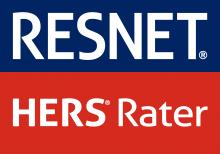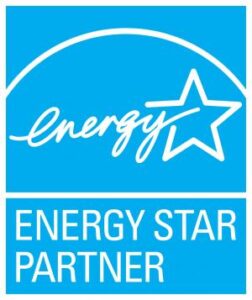When it comes to improving the comfort and efficiency of your home, insulation plays a vital role. But understanding the ins and outs of insulation can be confusing, especially with so many materials, techniques, and considerations to navigate.
At The Fifth Fuel, we often get asked a variety of questions about insulation for homes in Metro Maryland, Northern Virginia, and DC. To help you better understand this critical home efficiency improvement, we’ve compiled answers to some of the most frequently asked questions about insulation.
“Where Are the Best Places to Install Insulation?”
The most effective places to install insulation in your home depend on where heat loss or gain is most likely to occur. Common areas include:
- Attics
- Basements and Crawlspaces
- Around Windows and Doors
- Floors
- Walls
Don’t Forget Air Sealing!
While all of the above listed areas are important to insulate, it is absolutely essential to air seal as well as insulate these areas. Insulation will lose its effectiveness if air gaps allow outside air to freely infiltrate!
”How Can I Know What Type of Insulation I Have?”
Identifying your existing insulation type can help determine whether you need upgrades. Here’s how to identify the most common types:
- Fluffy pink, yellow, or white material in batts or as loose-fill: This is fiberglass insulation.
- Gray, dense, and lightweight material that is loose fill: This is cellulose insulation.
- Hardened or semi-rigid foam, usually white or yellow: This is spray foam insulation.
A professional insulation contractor like The Fifth Fuel can help you determine your current insulation’s type and effectiveness during an energy assessment.
”How Can I Know If My Insulation Is Not Working?”
Insulation that isn’t performing properly can cause noticeable issues in your home. If you notice any of the following signs, it’s time to consult a professional to inspect and possibly upgrade your insulation:
- Uneven temperatures between rooms
- Higher-than-average energy bills
- Drafts near walls, windows, or doors
- Cold floors or ceilings
- Ice dams forming on your roof in winter
”How Much Does Insulation Installation Cost?”
The cost of insulation installation varies depending on factors like the type of insulation, the size of the area, and the amount of material needed. Customized pricing quotes are always recommended, and available!
”Does Insulation Still Work If It Gets Wet?”
No, most insulation types lose their effectiveness when wet. For example:
- When fiberglass insulation gets wet, it: Retains moisture, which reduces its R-value and can lead to mold growth.
- When cellulose insulation gets wet, it: Absorbs water, causing it to clump and lose insulating properties.
- When spray foam insulation gets wet, it: resists water absorption, making it the exception and an excellent choice for areas prone to moisture.
If your insulation gets wet, it’s important to address the source of the moisture and replace any compromised insulation as soon as possible.
”What Is the Best Type of Insulation?”
Different insulation materials will be better suited for different needs and different areas of the home. Here are some examples of where The Fifth Fuel uses different insulation materials throughout the home:
- Attics and Walls: Blown-in cellulose or fiberglass offers good coverage and R-value.
- Crawlspaces and Basements: Closed-cell spray foam provides moisture resistance and air sealing.
- Soundproofing: Fiberglass batts or mineral wool are excellent options.
A professional contractor can help recommend the ideal insulation type for your home’s unique requirements.
”What Is Spray Foam Insulation Made Out Of?”
Spray foam insulation is made from a combination of isocyanate and polyol resin, which react to expand and harden. It comes in two types:
- Open-Cell Spray Foam: Lightweight and slightly flexible, great for soundproofing and indoor applications.
- Closed-Cell Spray Foam: Dense and rigid, providing excellent insulation and moisture resistance.
These materials are safe for humans after a drying and curing time of usually less than 24 hours, and are extremely durable while also offering high R-values per square inch.
”What Is Cellulose Insulation Made Out Of?”
Cellulose insulation is an eco-friendly option made from recycled paper products, like newspapers and cardboard. It is treated with non-toxic fire retardants to improve safety and prevent pest infestations. This material is often used in attics and walls for its high thermal performance and safety.
”What Is Fiberglass Insulation Made Out Of?”
Fiberglass insulation is made from fine glass fibers spun into batts, rolls, or loose-fill material. It is widely used due to its affordability and versatility. However, proper installation is key to ensuring its effectiveness and preventing gaps.
”How Does Insulation Impact Energy Bills?”
Proper insulation reduces heat transfer, meaning your heating and cooling systems don’t have to work as hard to maintain a comfortable indoor temperature. A well insulated home keeps summer heat outside and winter heat inside. This results in:
- Lower monthly utility bills
- Less wear and tear on HVAC systems
- Improved overall home comfort year-round
”Why Should I Hire a Professional for Insulation Installation?”
While DIY insulation installation is possible in some cases, professional installation ensures:
- Accurate assessment of your home’s insulation needs
- Proper material selection and application
- Effective air sealing to maximize efficiency
- Building science expertise to avoid common pitfalls like thermal bridging or moisture issues
The Fifth Fuel’s team of experienced professionals ensures your home is insulated properly and efficiently. If you have more questions about insulation or are ready to improve your home’s comfort and efficiency, contact The Fifth Fuel today. Our experts are here to help you create a cozier, more energy-efficient home.






